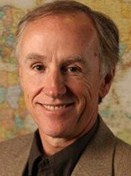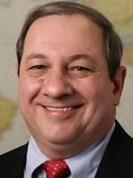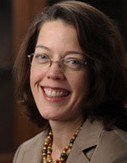President Barack Obama is prepared to move ahead with a limited military strike on Syria, administration officials said Thursday (Aug. 28), despite a rejection of such action by America’s strongest ally, Britain, and mounting concerns from Congress.

But, David Cortright, director of policy studies at the University of Notre Dame’s Kroc Institute for International Peace Studies, believes that would be a mistake. Read Cortright’s op-eds on Syria in TIME and the Christian Science Monitor.
“The British Parliament’s rejection of military action in Syria is a body blow against the Obama administration’s already weak political argument for attacking Syria,” Cortright says. “The president is standing alone and exposed. There is no need to rush to judgment.”
British Prime Minister David Cameron lost Thursday’s vote endorsing military action by 13 votes, all but guaranteeing that Britain will play no direct role in any U.S. attack on Syria’s government.

“The British Parliament vote shows that careful and wide deliberation is essential to the democratic use of force in complex situations like responding to the use of chemical weapons in Syria,” says former U.N. adviser and top sanctions expert George A. Lopez, the Hesburgh Professor of Peace Studies at Notre Dame’s Kroc Institute. Lopez served as a panelist this week discussing the crisis in Syria on MSNBC and Bloomberg TV.
“Perhaps the vote will spark the search for strong, non-military measures that will protect civilians in this terrible war,” Lopez says. “At the same time, Britain is rightly pushing ahead with a resolution at the U.N. Security Council to condemn the chemical attack and to call upon the Council to authorize ‘all necessary means’ to hold the perpetrators of these atrocities — presumably the Assad regime — accountable for their actions. A number of measures short of military strikes might be employed with states reserving military measures for a subsequent offense.”

Chemical weapons are banned under international law, but so is unauthorized military force, according to Mary Ellen O’Connell, professor of international law and research professor of international dispute resolution at the Kroc Institute.
Author of “What is War?” O’Connell says, “The Security Council could authorize the use of force, but only by showing that any attack can accomplish a legitimate military objective. When it comes to arms control, military force has no record of success; it succeeds in taking innocent lives. Diplomacy can work, and that is where the world’s attention needs to be now — not on more death and destruction.”
O’Connell recently published op-eds focusing on the legality of military force in Syria in The New York Times and CNN.
Contacts: David Cortright, 574-631-8536 or dcortrig@nd.edu; George Lopez, 574-631-6972 or lopez.1@nd.edu; Mary Ellen O’Connell, 574-631-7953 or maryellenoconnell@nd.edu